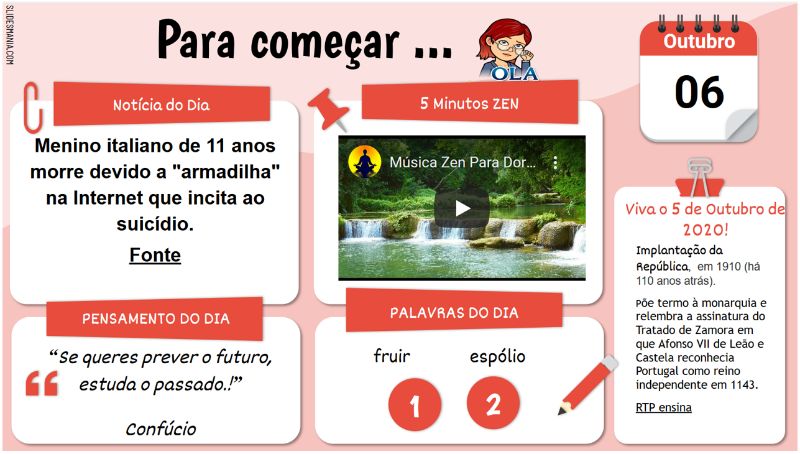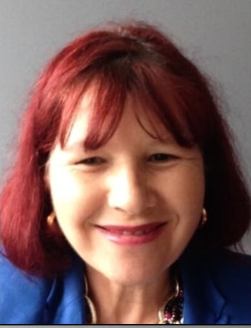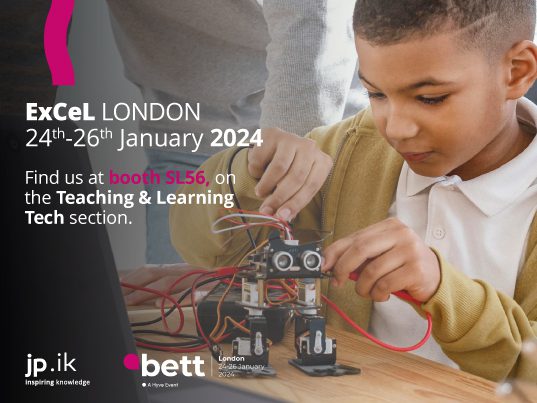In the previous school year, we experienced an unprecedented situation, to which students, teachers and families found themselves constrained to face and adapt. It was an abrupt change for which no educational actor was fully prepared, and the challenges faced by schools were countless. In fact, difficulties and obstacles of different nature emerged in the transition from face-to-face to online teaching. As we have seen, there was no time in advance to prepare for the transition to online education in a structured and planned way, due to the speed at which the change followed. During this period, we found different strategies and solutions to face the technological and methodological difficulties arising, sometimes benefiting from the help of colleagues, friends and family, other times from the support networks created within the educational communities.
At the beginning of this atypical school year, we are living uncertain and intermittent times, because there is the possibility that at any moment face-to-face education will cease for a few days and continue at distance, due to some contagion by covid-19. Keeping in mind what I learned from the experience of confinement, I outlined a work plan that combines face-to-face with virtual teaching. For example, I created a blog and a website to support the classes, through which I provide the materials to support the autonomous study: explanatory videos of the most complex subjects, a podcast with the analysis of the poems and texts of the program, and a digital mural so that students can express themselves.
In my classes, students can use their smartphones to carry out curricular activities, for this we prepared a collaborative regulation signed by all students. To better control the integration of students’ mobile devices in class and prevent abusive behavior, I assigned each student 300 points that correspond to 3 values of their final grade of the module. Now it is up to each student not to lose these points. In our educational institution we opted for the learning management platform Google Classroom that I use as an online classroom. This virtual space responds well when it is accessed by mobile devices (smartphones and tablet), facilitates peer discussion, supports different multimedia resources and students can follow the tasks to be performed in each class and their evaluations through performance challenges, after the students had delivered the schools assignments. Since I do not want any students to be left behind, I have established peer tutoring. The most proficient students in the subject Portuguese support a colleague who experience a more challenging learning journey. In this way, if there is a need for any student or everyone to continue classes from home they will always be supported by the teacher and a colleague.
Mental health and intellectual development of my students are constant concerns of mine when I plan my classes. For this year, I prepared some routines for the beginning of class, which I present in slides (Google Slides) class after class. For starters, we have the “5 zen minutesâ€, the newspaper story of the day, the words of the day, the thought of the day and the celebration of a relevant ephemeris (figure 1). These moments of class are being very relevant for the well-being of the students and my students seem to love it.

As we know, the educational process presents us with many challenges that we need to be able to respond to. One reality is the teacher mastering the contents, another very different is to teach them: being capable of cognitively mobilizing students, adapting the assessment and materials, differentiating teaching to meet students’ individual needs, creating a safe environment, and developing a quality education.
In this sense, when I am planning activities (projects) for my students I ask myself the following questions: (i) Is the activity relevant to the learning journey? (ii) Does it relate to the students’ interests? (iii) Does it allow developing reflection, critical spirit, self-knowledge, creativity, and other talents? (iv) Does it integrate the knowledge of my discipline with the knowledge of others? (v) Does it promote the mix of different languages? (vi) Is it open enough to foster distinct resolution modes?
I believe that with these issues I guide the educational process in a more flexible and effective way, engaging all students.
Conducting the teaching and learning process with students in masks, as well as me, deprives me of seeing their reactions, emotions and open smiles that are a regular presence at my classes. In these times, it is hard for me not to get closer to my students to assist them in their learning tasks, and support them, individually, as we were used to.
Despite the necessary limitations, being in their presence is a rewarding experience because we spend well every minute of the class, since two classes are never the same, and time flies! Both me and the students are happy to return to the classroom and experience every moment of learning.
Although it is being an exhausting beginning of the school year by the constraints and uncertainties, it is also being one of the most rewarding. Because I see students wanting to learn with great enthusiasm, and this is the best reward I can get. Effectively, educational action is an act of passion.

Profile
Adelina Moura has a degree in Portuguese and French Teaching, a Diploma in Superior Specialised Studies in School Administration, Master in Pedagogical Supervision of Portuguese Teaching and a PhD in Educational Sciences in the field of Educational Technology.
She has been dedicated to the research regarding Mobile Learning with several publications in Portugal and abroad.
She is a teacher of elementary and secondary education, tutor of distance education courses at Camões – Institute of Cooperation and Language and a master trainer of continuous teacher training in specific fields (Portuguese and French) and educational technology.
She is an integrated researcher of the R&D group – GILT (Games Interaction and Learning Technology), based at the Higher Institute of Engineering of Porto, and member of the LabTE (Laboratory of Educational Technologies) group of University of Coimbra.
Adelina Moura also collaborates with the National Reading Plan team (PNL2027).




